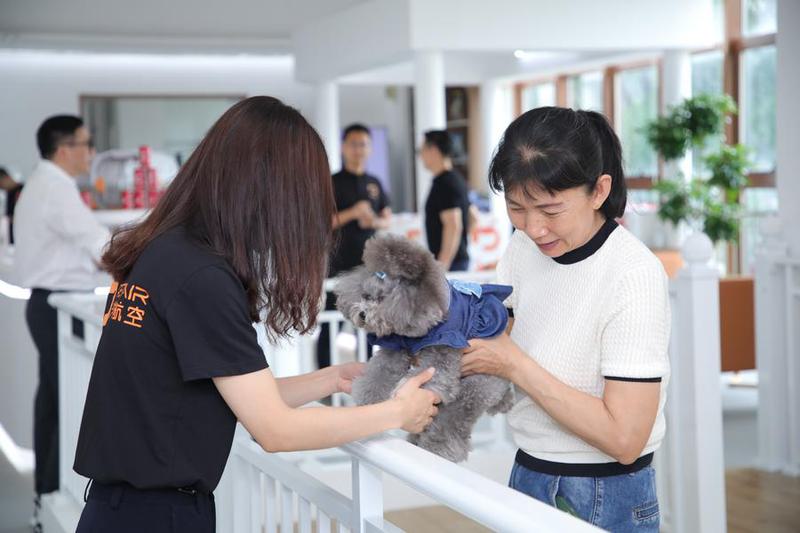China strengthens animal-attack regulations with updated law


BEIJING -- China has revised a law to strengthen penalties for pet-related offenses and improve safety in public spaces following a rise in dangerous animal attacks.
The revised Law on Penalties for Administration of Public Security, adopted on Friday, will take effect Jan 1, 2026. It adds new provisions targeting individuals who breed or sell aggressive animals in violation of existing laws, as well as those who fail to prevent their animals from injuring others.
The revision also targets offenses of disturbing others through animal ownership and using animals to intentionally harm others.
For example, under the updated law, individuals who violate rules on the sale or ownership of dangerous animals such as ferocious dogs will first be issued a warning. Those who fail to correct their behavior or whose animals cause injury may face detention of up to five days or a fine of up to 1,000 yuan (about $140). In more serious cases, detention may extend up to 10 days.
The move follows a series of high-profile dog attacks that have sparked public outrage and heightened public anxiety.
In late 2024, a 4-year-old boy in northwestern Shaanxi province was severely injured after being mauled by two dogs while playing near his village. Just a month earlier, a mother and daughter were attacked by four unleashed dogs while walking in a park in Jiangxi province. The mother sustained more than a dozen wounds.
The tragedies have intensified calls for tougher regulation. Observers argue that the current public security administrative penalty, which has been in place for nearly two decades, fails to meet evolving social dynamics in China.
The country has seen a rise in its urban pet population in recent years, fueling a booming pet economy but also raising concerns over public safety. As of 2024, the number of pet cats and dogs in the country's urban areas has surpassed 120 million, according to official estimates.
Legal experts believe the revised law addresses long-standing enforcement gaps, particularly in light of the growing pet population.
Until now, most animal-related injuries were handled under China's civil code and local regulations, which typically require owners to pay victims' medical expenses but to carry few other consequences.
Si Wei, a senior partner at the Beijing Zhongwen Law Firm, pointed out that in previous judicial rulings related to dangerous animal attacks, penalties largely relied on the Civil Code's tort liability provisions. They focus more on civil responsibility than on imposing significant administrative penalties, resulting in low legal costs for violators and limited deterrent effect.
"Challenges in applying the law include complexities in determining liability, lengthy injury assessment processes, and the difficulty of quantifying psychological harm," Si said. "Additionally, unclear enforcement responsibilities and regulatory gaps have allowed some individuals to disregard legal consequences, which further complicates victims' efforts to seek justice."
In February 2024, the Supreme People's Court, China's top court, released a batch of typical cases relating to the liability caused by domesticated animals, with the aim of fostering responsible pet ownership.
The six cases cover incidents that range from dog attacks caused by negligent owners to disputes over the breeding of large dogs, which is prohibited in urban areas.
Chen Yifang, a senior judge with the SPC, noted that the top court has been working to formulate and enhance judicial interpretations in this area, ensure strict liability for harm caused by dangerous animals, standardize adjudication criteria, and resolve disputes in the application of the law.
The revised law provides clear criteria and specific definitions to regulate pet ownership, maintain order in public spaces, and pursue legal responsibility and compensation. Legal experts hope this reform will create a safer environment for both pet owners and the general public.
- China strengthens animal-attack regulations with updated law
- South Korean trade rep highlights RCEP expo for intl co-op
- China's resort airports gear up for busy summer travel season
- China to deepen cooperation in law and judicial administration with Vietnam
- Taiwan night market finds new home in Chinese mainland
- China issues yellow alert for rainstorms






































